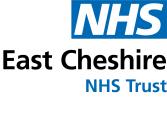Clerks are the engine that keeps the NHS running successfully. They make sure our patients have the information they need for their care and our healthcare professionals can access crucial patient records.
Clerks work throughout the NHS in areas such as:
- hospital wards
- specialist departments or clinics, including cancer centres or accident and emergency units
- GP surgeries and health centres
- the headquarters of an NHS trust
- health records department
Depending on where they work as a clerk, they could be:
- booking patients in for appointments or their transport to and from hospital
- chasing up reports
- inputting patient data
- the first point of patient contact by answering the phone or emails
Some clerks may spend their time on a particular type of work and their job title may reflect this. For example:
- clerk/typist
- reception clerk/receptionist
- clinical coding clerk
- admissions clerk
- ward clerk
- clinic clerk
While many clerks will have a lot of contact with patients, their relatives, carers and healthcare professionals, other clerks may not, for example, if you work in health records departments or headquarters.
Found a problem? Report it and help us to improve our website
